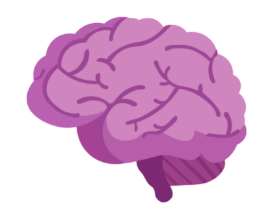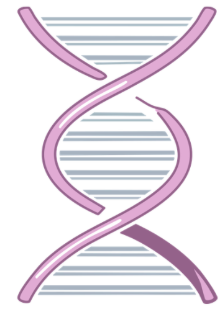The crossover of Eating Disorders, Mental Health and other Disorders
Did you know that around 1.25 million people in the UK are affected by eating disorders? These serious mental health conditions can affect anyone, regardless of age, gender, or background, and are influenced by a mix of biological, psychological, and social factors [1]. To learn more about the different types of eating disorders and how to support those affected, visit Beat's website.

The Link between Eating Disorders, Mental Health Conditions, and Other Disorders.
Mental health disorders are common, affecting 1 in 8 people globally [2], and they can co-exist. For those with eating disorders, 55-97% also experience another mental health condition [3].
Mental health disorders associated with eating disorders include:
-
Personality disorders [3]: Research has found that people with eating disorders are more likely to have increased perfectionism, neuroticism, low extraversion, sensitivity to social rewards, and avoidance motivation; traits that are also commonly associated with personality disorders.
-
Bipolar disorder [4]: A UK study of over 34,000 participants found that people with bipolar disorder who also binge eat tend to experience more intense and frequent mania symptoms. Those with bulimia nervosa showed the highest rates of these symptoms. The findings suggest that binge eating itself, rather than a specific eating disorder, may be more closely tied to how mania presents.
-
Anxiety disorders: Lloyd and colleagues (2019) [5] reported that anxiety and anorexia nervosa may influence each other, meaning adolescents and young adults with anxiety disorders could have a higher risk of developing anorexia nervosa. Additionally, Kerr-Gaffney et al. (2018) found evidence to suggest that both bulimia nervosa and anorexia nervosa are connected to social anxiety. Our sister study, GLAD (Genetic Links to Anxiety and Depression), aims to explore risk factors for depression and/or anxiety, shedding light on shared genetic and psychological risk factors that could inform more targeted, effective treatment. Why not sign up here?
Neurodevelopmental disorders associated with eating disorders include:
-
Attention deficit hyperactivity disorder (ADHD) [3]: Research indicates that impulsivity symptoms associated with ADHD are linked to anorexia nervosa and bulimia nervosa. Additionally, childhood ADHD increases the risk of disordered eating or the development of an eating disorder later in life.
-
Autism spectrum disorder (ASD) [6]: Research examining the relationship between ASD and eating disorders indicates that autistic individuals, especially women, may experience unique and complex challenges. Autism-related traits, such as sensory sensitivities, may influence these difficulties.

What can genetics tell us?
Studying the genetic differences between people helps us to understand the biological root of many diseases and disorders, including eating disorders [7]. To study these genetic differences, researchers use genome-wide association studies (GWAS), which you can learn more about here. A 2019 GWAS found strong genetic correlations between anorexia nervosa and obsessive-compulsive disorder, in addition to other disorders such as major depressive disorder, schizophrenia, and anxiety [8]. This suggests that these mental health conditions might be more connected than we once thought, not just in how they present, but in their biological roots, too.
Note - A genetic correlation is the extent to which the same genes influence different traits or conditions.

Future research and treatment
Future research should focus on how eating disorders and mental health issues interact, considering both the psychological and physical effects [3], as literature reviews suggest that eating disorder treatments often focus on physical health indicators but not underlying mental health needs [9]. Understanding these connections involves gaining a clearer picture of how these conditions overlap with, and influence eating disorders in real life. This helps clinicians move beyond treating symptoms in isolation and instead develop integrated treatment plans, where co-occurring disorders are addressed together [10]. This can help to improve outcomes and promote person-centred care for those with co-occurring disorders [11].
Eating disorders are often missed in general mental health settings, partly because people rarely present with eating concerns as their main issue. They might come in with symptoms like anxiety, mood swings, or physical complaints, which can mask the underlying disorder. Therefore, many people don’t get the support they need early on, delaying their diagnosis and/or treatment [12]. By understanding the influence of genes on eating disorders, we can begin to figure out what is really going on in the brain and body, and hopefully create better treatments in the future [13]!
Here at EDGI UK, we are striving to spread awareness and reduce the stigma of eating disorders. If you would like to contribute to this meaningful research, sign up on our website or visit our social media pages linked below to learn more about how you can get involved.
Instagram: edgi_uk
X: edgi_uk
LinkedIn: EDGI UK
Facebook: edgiuk
BlueSky: edgiuk.bsky.social

